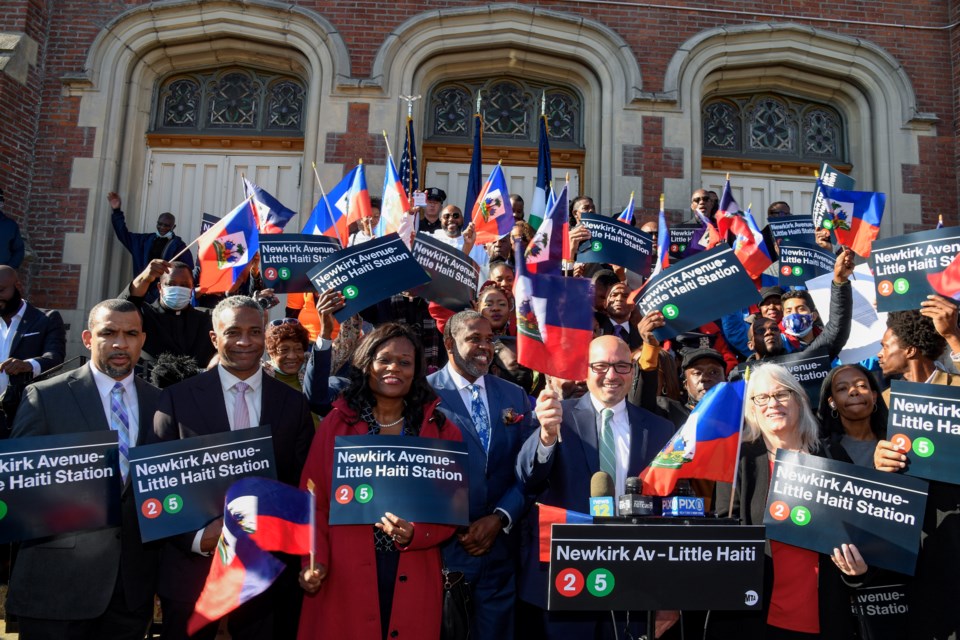Recent events, including the controversy over migrants in Springfield, Ill., have inadvertently brought attention to an overlooked and underappreciated community: Haitian Americans. This vibrant group has played a longstanding role in turning the ideals of American society – individual liberty, equality under the law and the pursuit of happiness – into practice. Yet, disturbingly, Haitian Americans have become targets of xenophobic attacks, perpetuating harmful stereotypes and ignoring their rich history of contributions to our nation.
Since before the United States existed, people from Haiti fought for freedom alongside their American counterparts. The struggle for liberty that began on that Caribbean island continues today, both in Haiti and in the U.S. Our shared aspirations should be a reason for mutual respect and admiration, not division.
It's crucial that we seize this opportunity to educate about Haiti—the first Black Republic founded by former enslaved Africans. This means ensuring that schools, curricula and classroom experiences include texts and dialogues that highlight the long presence and myriad contributions of Haitians to this country. A prime example is the 800 men of color, ancestors of today's Haitians, who fought and died at the 1779 Battle of Savannah, Ga. alongside American Revolutionary soldiers. Their sacrifice was crucial in supporting the freedom of the nascent U.S. nation from colonial Britain.
The Haitian presence in American life extends far beyond the battlefield. Jean Baptiste Point du Sable (1745-1818), the founder of Chicago, and Pierre Toussaint (1789), an important philanthropist in New York City who established an orphanage and helped build the first St. Saint Patrick's Cathedral, are just two early examples.
In more recent times, Haitian Americans have excelled in various fields: the artist Jean-Michel Basquiat, filmmaker Raoul Peck, writers Edwidge Danticat and Roxane Gay, actors Garcelle Beauvais and Jimmy Jean-Louis, and scholars like Dr. Claudine Michel and Dr. Carole Berotte Joseph. These individuals represent countless Haitians who came believing in the promise of America and continually contribute to its development.
My father (1968), my mother (1978), and many other Haitians and their Haitian American descendants residing all over this country came for that promise made by America that "All men are created equal," which is somewhat captured in the famed sonnet The New Colossus by the poet Emma Lazarus. The Haitian diaspora in the U.S. is a steadily growing population, and our trajectory does not differ much from that of other ethnic groups that have come to America in search of refuge and safer havens.
Brooklyn, home to one of the largest Haitian populations in the U.S., stands as a testament to this positive influence. The borough's Little Haiti pulsates with the energy of Haitian culture, entrepreneurship and community spirit. The establishment of the Haitian Studies Institute at Brooklyn College in 2016 further underscores the significance of the Haitian American community, serving as a vital center for studying and celebrating Haitian culture and history.
It is in this context that the recent xenophobic attacks against Haitian Americans must be understood and vehemently opposed. These attacks not only target Haitian individuals but also undermine the very principles of diversity and inclusion that have made America a place where immigrants of all backgrounds have come to achieve the American dream, creating better lives for themselves and the communities they reside in.
As we move forward, it's imperative that we challenge negative narratives and celebrate the true story of Haitian American contributions. This involves not just defending against attacks but actively promoting awareness of Haitian American history, culture and ongoing contributions to our society. The right to the pursuit of freedom, security and happiness includes us all.
Dr. Marie Lily Cerat is the director of the Haitian Studies Institute at Brooklyn College, CUNY.




